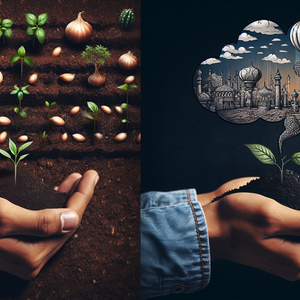The Art of Oral History as a Storytelling Tool

At the heart of oral history lies the power of personal narratives. These stories provide intimate glimpses into individual lives, rich with emotions, challenges, and triumphs. Unlike conventional historical accounts, personal narratives capture the essence of cultural identity and community experience. For example, the stories of immigrant families often reflect their struggles, dreams, and adaptations to new environments, weaving together themes of hope, resilience, and community support. When such narratives are shared, they contribute to a collective memory that honors heritage and educates future generations. The transformative power of personal narratives is vividly illustrated in the oral histories documented by the StoryCorps project. By inviting individuals to share their stories in their own voices, StoryCorps not only preserves these accounts but also highlights the common threads of human experience, connecting diverse individuals through their shared emotions and experiences.
Community Storytelling Practices
Oral history flourishes in community settings, where storytelling becomes a collective experience. Across cultures, storytelling practices differ, yet they all serve the same purpose: preserving history and fostering connections. In many Indigenous cultures, for instance, storytelling circles provide safe spaces for individuals to share their stories, often accompanied by traditional music or dance. These gatherings not only reinforce community bonds but also ensure that cultural practices, beliefs, and lessons are transmitted across generations. An illustrative example is the storytelling traditions among the Native American tribes, where elders pass down myths and historical accounts, preserving not only the tribe's history but also imparting moral lessons and cultural values. The communal nature of these storytelling practices strengthens identity and belonging, creating a sense of unity among members.
Preserving Traditions in Marginalized Communities
In marginalized communities, oral history assumes a crucial role in reclaiming narratives that have historically been overlooked or silenced. Often, these communities may lack access to written records or mainstream media representation, making oral history a vital tool for cultural survival. During the Civil Rights Movement, for instance, African American oral history projects emerged as a way to document the experiences of those fighting for justice and equality. These narratives, captured through interviews and storytelling, served as powerful instruments for social change, providing both inspiration and a historical record of resilience. A poignant example is the "Voices of the Civil Rights Movement" project, where individuals shared their experiences, contributing to a broader understanding of the struggle for civil rights. These oral histories not only preserve the past but also empower future generations by reminding them of the sacrifices made for justice and equality.
The Impact of Technology on Oral History
While deeply rooted in tradition, oral history is evolving in response to modern technological advancements. Digital platforms and social media have opened new avenues for storytelling, allowing individuals from diverse backgrounds to share their experiences on a global scale. Online oral history projects, such as the "StoryCorps" and "The Memory Project," enable users to record and share their narratives, making oral history more accessible than ever before. These digital tools not only serve to preserve cultural heritage but also encourage dialogue and understanding across different communities. For example, podcasts and video-sharing platforms have become popular mediums for sharing oral histories, allowing individuals to connect with audiences far beyond their immediate communities. This shift highlights the adaptability of oral history as a storytelling tool, ensuring that it remains relevant in a rapidly changing world.
The art of oral history is a powerful storytelling tool that transcends time and technology. It preserves cultural heritage, fosters resilience within communities, and amplifies the voices of those who have been marginalized. As we navigate an increasingly digital landscape, it is essential to recognize the enduring value of personal narratives and community storytelling practices. By honoring the past and sharing our stories, we can cultivate a deeper understanding of one another and build a more inclusive future. Oral history is not merely about preserving what has been; it is about empowering individuals and communities to shape their narratives, ensuring that their voices are heard for generations to come. In a world that often prioritizes the loudest voices, oral history invites us to listen to the quiet, powerful stories that enrich our collective human experience.
Oral Historian
Museums, cultural institutions, universities, and non-profit organizations focused on heritage preservation
Core Responsibilities
Conduct interviews and collect personal narratives, focusing on marginalized communities to document their histories.
Analyze and curate oral history collections for educational and archival purposes.
Organize community events to promote storytelling and engage the public in oral history projects.
Required Skills
Proficiency in interviewing techniques and a strong understanding of cultural sensitivity.
Experience with audio-visual recording equipment and editing software.
Strong written and verbal communication skills to articulate findings effectively.
Community Engagement Coordinator
Non-profits, cultural organizations, community centers, and educational institutions
Core Responsibilities
Develop and implement programs that promote community storytelling and oral history initiatives.
Facilitate workshops and training sessions to empower community members in sharing their narratives.
Collaborate with local organizations to enhance outreach and participation in storytelling projects.
Required Skills
Strong interpersonal skills for building relationships within diverse communities.
Experience in project management and community organizing.
Knowledge of digital tools for storytelling and social media engagement.
Digital Archivist
Libraries, archives, museums, and academic institutions focusing on digital humanities
Core Responsibilities
Manage and preserve digital collections of oral histories and personal narratives.
Implement metadata standards and ensure the accessibility of digital content for researchers and the public.
Collaborate with technology teams to develop user-friendly platforms for sharing oral history collections.
Required Skills
Familiarity with archival practices, digital preservation techniques, and database management.
Proficiency in digital asset management systems and software.
Attention to detail and strong organizational skills to maintain accurate records.
Cultural Anthropologist
Universities, research institutions, cultural organizations, and government agencies
Core Responsibilities
Conduct field research to study the oral traditions and storytelling practices of various cultures, particularly marginalized groups.
Analyze cultural narratives and their implications on community identity and social dynamics.
Publish findings in academic journals and present at conferences to share insights on oral history's role in cultural preservation.
Required Skills
Strong qualitative research skills, including participant observation and ethnographic methods.
Proficiency in data analysis and a thorough understanding of cultural theory.
Excellent communication skills for writing reports and delivering presentations.
Podcast Producer (Oral History Focus)
Media companies, non-profit organizations, educational institutions, and independent podcasting platforms
Core Responsibilities
Create and produce engaging audio content focused on oral histories and personal narratives.
Conduct interviews with individuals and edit recordings for clarity and impact.
Collaborate with storytellers and community members to foster diverse voices and perspectives in episodes.
Required Skills
Strong audio editing skills and familiarity with production software (e.g., Audacity, Adobe Audition).
Creativity in storytelling and an understanding of narrative structure.
Ability to manage project timelines and coordinate with various stakeholders.


